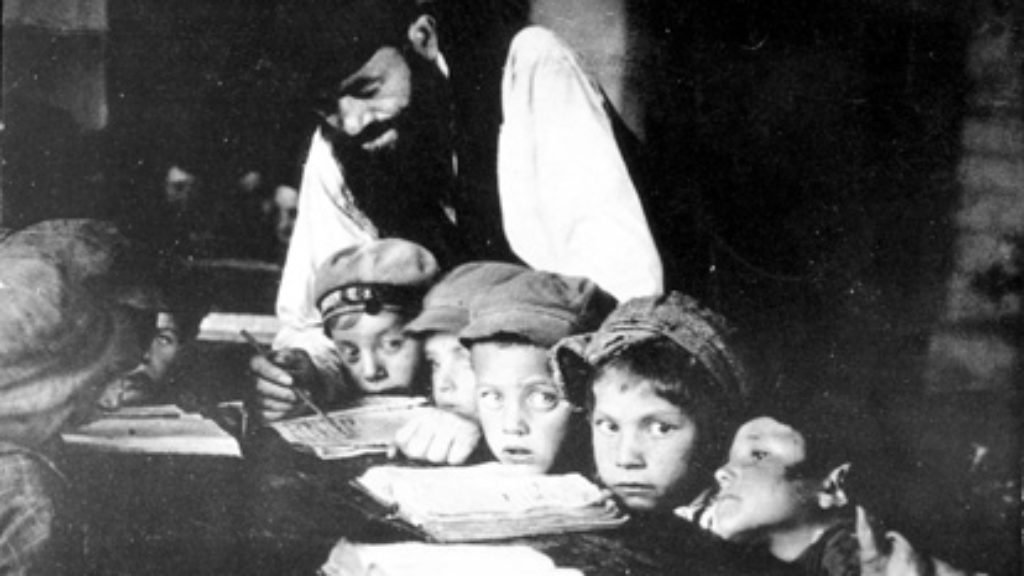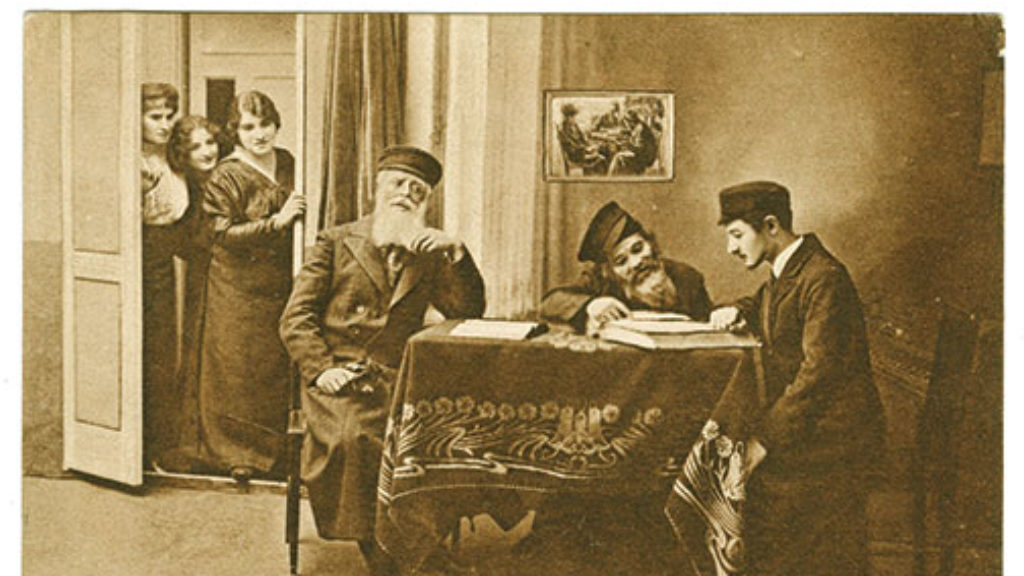The Problem Is Not Ideological
Since the publication of The Pew Research Center’s “A Portrait of Jewish Americans,” the real and virtual pages of Jewish media have been ablaze with laments for what many authors see as death of American non-Orthodox Judaism. Perhaps the loudest of these voices is Daniel Gordis’ “Requiem for a Movement.” Gordis reviews the data of the Pew report and deduces that the end of Conservative Judaism is nearer than anyone thought or wishes to believe. Gordis’ piece is filled with sadness, and while his analysis of the perceived failure of what was once the largest “movement” in American Judaism is, in many ways, true, he makes a category mistake by conflating “Conservative Judaism” with the movement which shares the name.
There can be little question that the main institutions of Conservative movement, synagogues especially, face enormous challenges at the moment. Yet, religious ideologies are never fully identical with the practical spheres of life in which those theological modes of thought are enacted in real communities. Gordis is right to excoriate rabbis and leaders of Conservative institutions for their failure to fully enact the ideology of Conservative Judaism within the various arms of the movement. We all know that the movement is in trouble, but the Conservative movement’s woes ought not be blamed on Conservative Judaism. From my prospective as someone whose life is currently devoted to training future Conservative Rabbis to be thoughtful talmudists, Conservative Judaism is, in fact, alive and well beyond the narrow confines of the movement.
Though many are apparently blind to this fact, Conservative Judaism encompasses a far broader swath of the Jewish population than that shrinking number of Jews who affiliate in some capacity with an arm of the movement. This can be seen most clearly by thinking about those who would never dare to set foot in my first-year Talmud course. It may be an unpopular opinion to my many friends and colleagues, but when the fundamentalist voices of the haredi press excoriate the “Open Orthodox” Yeshivat Chovevei Torah as in fact “Conservative,” I am offended by their mean-spiritedness, but the truth is that I fundamentally agree.
Large swaths of people who affiliate as “Orthodox” believe in dinosaurs and the germ theory of disease but not in a genetic difference between Jews and Gentiles. They rely much more heavily on psychology than “Da’at Torah” and think there is wisdom in non-Jewish religious traditions. They don’t see any innate immorality in an act of gay sex and believe that women have as much right to access to traditional learning as men do. They are offended by some aspects of hilkhot nidda, because they recognize the fact that all documents, religious or otherwise, are products of a certain time and place, and deserve to be studied as such. Like it or not, and despite their best efforts to portray themselves as otherwise, they subscribe to the basic approach of Conservative Judaism.
The same phenomenon occurs on the left. Many, if not most students at Reconstructionist Rabbinical College, Hebrew College, and even Hebrew Union College are not only drawn to traditional modes of Jewish practice and prayer, but seem to feel compelled, indeed commanded. All these students are participating in Conservative Judaism, and I haven’t even mentioned Mechon Hadar, the non-denominational egalitarian yeshiva.
In my own interactions with the men and women who have decided to devote the next five or six years of their lives to intense Jewish learning at The Jewish Theological Seminary, I meet fewer and fewer who are products of the Conservative movement (children of rabbis, students educated at Schechter schools, former members of USY, Koach, etc.) Instead, students enroll because they have had powerful experiences in community organizing, social justice work, chaplaincy, and above all, serious time learning Jewish texts in traditional Jewish modes of study at places like Pardes and Mechon Hadar. These students are, by and large, agnostic about the movement and its institutions. They didn’t grow up in the Conservative movement and aren’t necessarily committed to its institutions. Their passion is for an egalitarian, halakhic, yet non-fundamentalist Judaism. They are passionate about Conservative Judaism, whether they call it that or not.
The Conservative movement is shrinking, and Rabbi Gordis is not wrong to find this sad. But the institutional problems facing the movement should not cloud the simple fact that Conservative Judaism, whether connected to the movement or not, continues to speak to many, perhaps most, of those who choose to devote their lives to the future of the Jewish people.
Editor’s Note: Daniel Gordis replies to his critics and outlines his positive vision for the future.
Comments
You must log in to comment Log In
Suggested Reading
Lost in Translation
The novelist Jonathan Rosen has written evocatively of the parallels between rabbinic literature and the World Wide Web: “When I look at a page of Talmud and see all those texts tucked intimately and intrusively onto the same page, like immigrant children sharing a single bed, I do think of the interrupting, jumbled culture of the Internet.” Rosen’s insight is…

Brave New Bavli: Talmud in the Age of the iPad
The Talmud was hypertextual before we had the word. ArtScroll's new app is only the beginning.
Moses, Aaron, and Pharaoh Walk into a Bar: Passover in the Union Army
Yankee ingenuity at Passover: how one regiment made a Seder in the midst of the Civil War.

What’s Yichus Got to Do with It?
For the whole history of Jewish society, until less than two hundred years ago, love and attraction played little or no role in the making of marriages, which were arranged and contracted according to the interests—commercial, religious, and social—of the families involved.
charles.hoffman.cpa
"Large swaths of people who affiliate as “Orthodox” believe in dinosaurs and the germ theory of disease but not in a genetic difference between Jews and Gentiles. They rely much more heavily on psychology than “Da’at Torah” and think there is wisdom in non-Jewish religious traditions. They don’t see any innate immorality in an act of gay sex and believe that women have as much right to access to traditional learning as men do. They are offended by some aspects of hilkhot nidda, because they recognize the fact that all documents, religious or otherwise, are products of a certain time and place, and deserve to be studied as such. Like it or not, and despite their best efforts to portray themselves as otherwise, they subscribe to the basic approach of Conservative Judaism." Which is all fine and nice.
However, those "large swaths", while not finding any "innate immorality"in gay sex, do not feel that Jewish Law and practice should be turned on its head to accommodate the Political Correctness of gay marriage. And they feel that in a democracy where separation of church and state is the most virtuous element of the political system, they can acknowledge changing morays quite well by not standing in opposition to civil marriages among gays, while holding fast to the Torah. And the Torah which was given to the Jewish People at Sinai does not provide for marriage between members of the same sex. And thus, they believe that the creation of a religious institution of gay marriage is as authentically Jewish as the addition of a set of laws prohibiting the eating of lemons.
yoram
Charles, your argument ignores the fact that there are serious moral arguments in favor of gay equality & a perfectly traditional commitment to believing that the Torah never requires immorality. Not so lemons (or other circus fruit).
Still there is something troubling about Bickart & Kalmanofsky and others response: CJ ideas aren't dead just the movement--that's the case for the defense?!
charles.hoffman.cpa
without excessive belaboring of the point, there is no such thing as "gay equality" in marriage - even among Conservative Judaism. The ceremony which is presented for gay couples has none of the legalisms of heterosexual marriage, and no Conservative rabbi has ever proposed that the relationship - if any - which a gay wedding in a Conservative synagogue creates has any implication or imposition of issurim and heterim.
Read the text of the "marriage ceremony" proposed by the Rabbinic Assembly or the ones used by various Conservative rabbis. You'll find that with the rarest of exceptions, the only thing that has any basis in any element of Jewish law, and therefore the only place where there is any "equality" is that both ceremonies - gay and straight - use the same blessing over a cup of wine.
Todd Berman
I feel that many of these responses are rephrasing the discussion in an almost Quixotic vein. Either the Conservative Movement won because everyone who isn't joining us is really Conservative. Or, look at the Modern Orthodox -- they are not doing very well either.
The first argument seems both historically myopic and disingenuous while the second is simply untrue.
Judaism has always been multivocal and still is. Many leaders of the CM focused on "the Movement" and forgot about Judaism. Yes, there have always been different voices in Judaism and still are. So how is that a novelty of the 20th Conservative Judaism? The CM spent too much time and resources on brand and not enough on content.
As to the anemia of Modern Orthodoxy as opposed to its right wing Charedi sybling, Just take a walk around Teaneck. MO synagogues, schools, yeshivot in Israel, daf yomi shiurim, are overflowing. How many members of Conservative synagogues know what an actual volume of the Vilna Shas looks like?
I was a poster-child of CM: Schecter, USY, Ramah, List College, etc. and I appreciate what those educators gave me. They set me on a path (However it didn't work for most of my friends from my youth who married non-Jews.) However, it wasn't until I learned in an Orthodox yeshiva and then studied under Orthodox professors that a gained a foothold in Jewish learning and commitment.